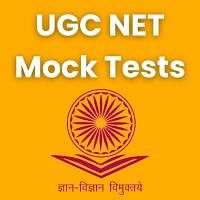UGC NET Exam > UGC NET Questions > Work measurement refers toa)length of time it...
Start Learning for Free
Work measurement refers to
- a)length of time it takes to complete a work task assigned to a specific job
- b)improving work methods
- c)arrangement of machines according to sequence of operations
- d)planning the work and working the plans
Correct answer is option 'A'. Can you explain this answer?
| FREE This question is part of | Download PDF Attempt this Test |
Most Upvoted Answer
Work measurement refers toa)length of time it takes to complete a work...
Work measurement refers to:
Work measurement is a process used to determine the length of time it takes to complete a work task assigned to a specific job. It involves analyzing and evaluating the various elements involved in the task in order to establish an accurate estimate of the time required for its completion.
Factors considered in work measurement:
1. Task complexity: The complexity of the task plays a crucial role in determining the time required for its completion. More complex tasks may require more time and effort compared to simpler ones.
2. Physical and mental effort: The physical and mental effort involved in performing the task is another important factor to consider. Tasks that require more physical exertion or mental concentration may take longer to complete.
3. Equipment and tools: The type and quality of equipment and tools used in performing the task can impact the time required for completion. Efficient and well-maintained equipment can help in reducing the overall time taken.
4. Workplace layout: The arrangement of machines, workstations, and other resources in the workplace can affect the efficiency of the task. Proper organization and layout can help in minimizing unnecessary movement and reducing the time required to complete the task.
5. Work methods: The methods and techniques employed in performing the task can significantly impact its duration. Streamlining and optimizing work methods can help in improving efficiency and reducing the time required.
Importance of work measurement:
1. Productivity improvement: Work measurement provides valuable insights into the time required to complete a task, which can help in identifying bottlenecks and inefficiencies. This information can be used to implement measures to improve productivity.
2. Resource allocation: Accurate work measurement allows for better resource planning and allocation. It helps in determining the optimal number of workers and machines required to meet production targets.
3. Standardization: Work measurement enables the establishment of standardized time norms for various tasks. This allows for consistent performance evaluation, fair wages, and effective production planning.
4. Cost control: By accurately estimating the time required for completion, work measurement helps in controlling labor costs. It allows for better budgeting and cost forecasting.
5. Process improvement: Work measurement provides valuable data for identifying areas of improvement in work methods, equipment, and layout. This information can be used to implement process improvements and increase overall efficiency.
In conclusion, work measurement refers to the determination of the time required to complete a work task assigned to a specific job. It involves considering various factors such as task complexity, physical and mental effort, equipment and tools, workplace layout, and work methods. Work measurement is important for productivity improvement, resource allocation, standardization, cost control, and process improvement.
Work measurement is a process used to determine the length of time it takes to complete a work task assigned to a specific job. It involves analyzing and evaluating the various elements involved in the task in order to establish an accurate estimate of the time required for its completion.
Factors considered in work measurement:
1. Task complexity: The complexity of the task plays a crucial role in determining the time required for its completion. More complex tasks may require more time and effort compared to simpler ones.
2. Physical and mental effort: The physical and mental effort involved in performing the task is another important factor to consider. Tasks that require more physical exertion or mental concentration may take longer to complete.
3. Equipment and tools: The type and quality of equipment and tools used in performing the task can impact the time required for completion. Efficient and well-maintained equipment can help in reducing the overall time taken.
4. Workplace layout: The arrangement of machines, workstations, and other resources in the workplace can affect the efficiency of the task. Proper organization and layout can help in minimizing unnecessary movement and reducing the time required to complete the task.
5. Work methods: The methods and techniques employed in performing the task can significantly impact its duration. Streamlining and optimizing work methods can help in improving efficiency and reducing the time required.
Importance of work measurement:
1. Productivity improvement: Work measurement provides valuable insights into the time required to complete a task, which can help in identifying bottlenecks and inefficiencies. This information can be used to implement measures to improve productivity.
2. Resource allocation: Accurate work measurement allows for better resource planning and allocation. It helps in determining the optimal number of workers and machines required to meet production targets.
3. Standardization: Work measurement enables the establishment of standardized time norms for various tasks. This allows for consistent performance evaluation, fair wages, and effective production planning.
4. Cost control: By accurately estimating the time required for completion, work measurement helps in controlling labor costs. It allows for better budgeting and cost forecasting.
5. Process improvement: Work measurement provides valuable data for identifying areas of improvement in work methods, equipment, and layout. This information can be used to implement process improvements and increase overall efficiency.
In conclusion, work measurement refers to the determination of the time required to complete a work task assigned to a specific job. It involves considering various factors such as task complexity, physical and mental effort, equipment and tools, workplace layout, and work methods. Work measurement is important for productivity improvement, resource allocation, standardization, cost control, and process improvement.
Free Test
FREE
| Start Free Test |
Community Answer
Work measurement refers toa)length of time it takes to complete a work...
Work measurement refers to the length of time it takes to complete a work task assigned to a specific job. It is the application of techniques which is designed to establish the time for an average worker to carry out a specified manufacturing task at a defined level of performance.
Attention UGC NET Students!
To make sure you are not studying endlessly, EduRev has designed UGC NET study material, with Structured Courses, Videos, & Test Series. Plus get personalized analysis, doubt solving and improvement plans to achieve a great score in UGC NET.

|
Explore Courses for UGC NET exam
|

|
Similar UGC NET Doubts
Work measurement refers toa)length of time it takes to complete a work task assigned to a specific jobb)improving work methodsc)arrangement of machines according to sequence of operationsd)planning the work and working the plansCorrect answer is option 'A'. Can you explain this answer?
Question Description
Work measurement refers toa)length of time it takes to complete a work task assigned to a specific jobb)improving work methodsc)arrangement of machines according to sequence of operationsd)planning the work and working the plansCorrect answer is option 'A'. Can you explain this answer? for UGC NET 2024 is part of UGC NET preparation. The Question and answers have been prepared according to the UGC NET exam syllabus. Information about Work measurement refers toa)length of time it takes to complete a work task assigned to a specific jobb)improving work methodsc)arrangement of machines according to sequence of operationsd)planning the work and working the plansCorrect answer is option 'A'. Can you explain this answer? covers all topics & solutions for UGC NET 2024 Exam. Find important definitions, questions, meanings, examples, exercises and tests below for Work measurement refers toa)length of time it takes to complete a work task assigned to a specific jobb)improving work methodsc)arrangement of machines according to sequence of operationsd)planning the work and working the plansCorrect answer is option 'A'. Can you explain this answer?.
Work measurement refers toa)length of time it takes to complete a work task assigned to a specific jobb)improving work methodsc)arrangement of machines according to sequence of operationsd)planning the work and working the plansCorrect answer is option 'A'. Can you explain this answer? for UGC NET 2024 is part of UGC NET preparation. The Question and answers have been prepared according to the UGC NET exam syllabus. Information about Work measurement refers toa)length of time it takes to complete a work task assigned to a specific jobb)improving work methodsc)arrangement of machines according to sequence of operationsd)planning the work and working the plansCorrect answer is option 'A'. Can you explain this answer? covers all topics & solutions for UGC NET 2024 Exam. Find important definitions, questions, meanings, examples, exercises and tests below for Work measurement refers toa)length of time it takes to complete a work task assigned to a specific jobb)improving work methodsc)arrangement of machines according to sequence of operationsd)planning the work and working the plansCorrect answer is option 'A'. Can you explain this answer?.
Solutions for Work measurement refers toa)length of time it takes to complete a work task assigned to a specific jobb)improving work methodsc)arrangement of machines according to sequence of operationsd)planning the work and working the plansCorrect answer is option 'A'. Can you explain this answer? in English & in Hindi are available as part of our courses for UGC NET.
Download more important topics, notes, lectures and mock test series for UGC NET Exam by signing up for free.
Here you can find the meaning of Work measurement refers toa)length of time it takes to complete a work task assigned to a specific jobb)improving work methodsc)arrangement of machines according to sequence of operationsd)planning the work and working the plansCorrect answer is option 'A'. Can you explain this answer? defined & explained in the simplest way possible. Besides giving the explanation of
Work measurement refers toa)length of time it takes to complete a work task assigned to a specific jobb)improving work methodsc)arrangement of machines according to sequence of operationsd)planning the work and working the plansCorrect answer is option 'A'. Can you explain this answer?, a detailed solution for Work measurement refers toa)length of time it takes to complete a work task assigned to a specific jobb)improving work methodsc)arrangement of machines according to sequence of operationsd)planning the work and working the plansCorrect answer is option 'A'. Can you explain this answer? has been provided alongside types of Work measurement refers toa)length of time it takes to complete a work task assigned to a specific jobb)improving work methodsc)arrangement of machines according to sequence of operationsd)planning the work and working the plansCorrect answer is option 'A'. Can you explain this answer? theory, EduRev gives you an
ample number of questions to practice Work measurement refers toa)length of time it takes to complete a work task assigned to a specific jobb)improving work methodsc)arrangement of machines according to sequence of operationsd)planning the work and working the plansCorrect answer is option 'A'. Can you explain this answer? tests, examples and also practice UGC NET tests.

|
Explore Courses for UGC NET exam
|

|
Suggested Free Tests
Signup for Free!
Signup to see your scores go up within 7 days! Learn & Practice with 1000+ FREE Notes, Videos & Tests.
























